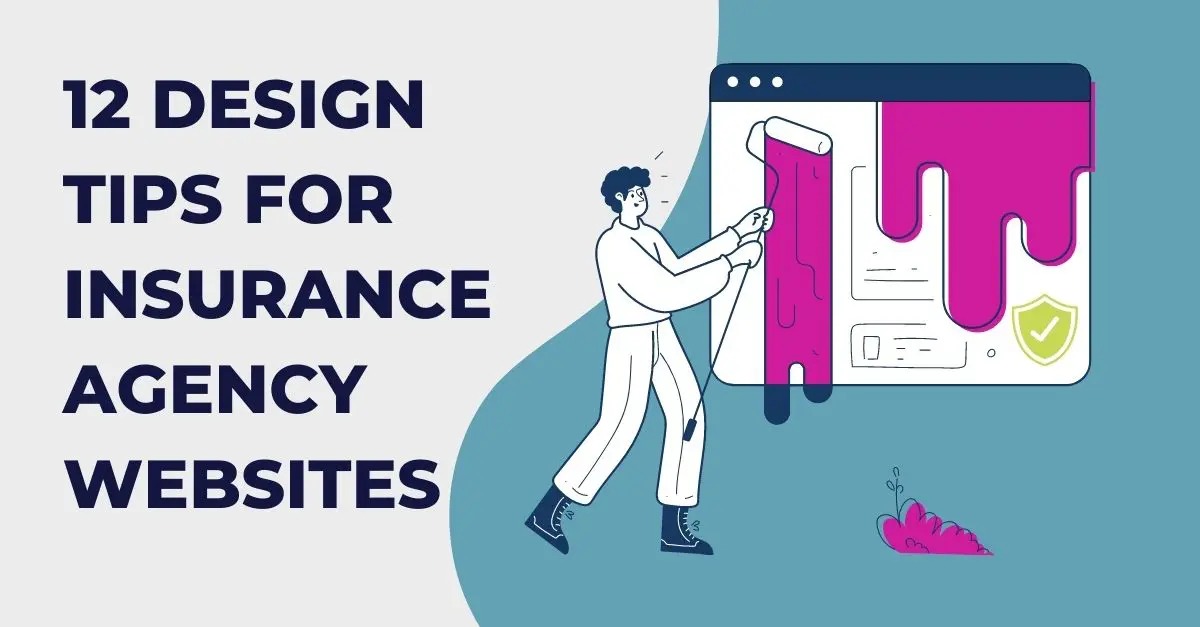

Finance
How To Open An Insurance Agency
Published: November 10, 2023
Learn how to open your own insurance agency and get started in the lucrative finance industry. Gain valuable insights and expert advice in this comprehensive guide.
(Many of the links in this article redirect to a specific reviewed product. Your purchase of these products through affiliate links helps to generate commission for LiveWell, at no extra cost. Learn more)
Table of Contents
- Introduction
- Understanding the Insurance Industry
- Market Research and Planning
- Legal and Licensing Requirements
- Setting Up Your Agency
- Hiring and Training Staff
- Building Relationships with Insurance Companies
- Developing Effective Marketing Strategies
- Selling Insurance Policies
- Providing Exceptional Customer Service
- Managing Agency Finances
- Growing Your Insurance Agency
- Conclusion
Introduction
Welcome to the world of insurance agencies! If you’ve ever considered starting your own insurance agency, you’re in the right place. Opening an insurance agency can be a rewarding and lucrative venture, but it requires careful planning and a deep understanding of the industry. In this article, we will guide you through the essential steps to successfully open and grow your insurance agency.
Insurance is a vital part of our society, providing financial protection and peace of mind to individuals and businesses alike. As an insurance agency owner, you will play a crucial role in helping people safeguard their assets, mitigate risks, and plan for the future. From auto and home insurance to life and health insurance, there are various types of coverage that you can offer to your clients.
However, launching an insurance agency is not without its challenges. It requires in-depth industry knowledge, compliance with legal and licensing requirements, effective marketing strategies, and exceptional customer service. By following the steps outlined in this article, you will be well-equipped to navigate the intricacies of the insurance industry and establish a successful agency.
We will discuss market research and planning, the legal and licensing requirements you need to fulfill, setting up your agency infrastructure, hiring and training staff, building relationships with insurance companies, and developing effective marketing strategies. We will also explore the art of selling insurance policies, providing exceptional customer service, managing your agency’s finances, and growing your business. By the end of this article, you’ll have a clear roadmap for opening your insurance agency and setting yourself up for long-term success.
So, if you’re ready to embark on this exciting entrepreneurial journey in the insurance industry, let’s dive right in and explore how to open an insurance agency!
Understanding the Insurance Industry
Before you open an insurance agency, it is crucial to have a solid understanding of the insurance industry. Insurance is a complex and highly regulated field that requires knowledge of various types of coverage, underwriting processes, claims management, and risk assessment.
Start by familiarizing yourself with the different types of insurance policies available, such as auto, home, life, health, and commercial insurance. Each type of insurance provides coverage for specific risks and requires different underwriting processes and policy terms.
Next, it’s important to understand the key players in the insurance industry. Insurance companies are the entities that provide insurance coverage to individuals and businesses. They rely on insurance agents and brokers, like yourself, to distribute their policies to customers. Agents work for a specific insurance company, while brokers can offer policies from multiple insurance companies.
In addition to insurance companies, regulatory bodies such as state insurance departments oversee the operations of insurance agencies and companies to protect consumers and ensure compliance with laws and regulations.
Another important concept in the insurance industry is risk assessment. Insurance companies assess the level of risk associated with insuring a particular individual or asset and use this information to calculate premiums. Understanding risk factors and how they impact insurance rates is essential for effectively selling insurance policies and advising clients on coverage options.
As an insurance agency owner, you will also need to stay updated on industry trends and changes. Insurance is an ever-evolving field, with advancements in technology, changes in consumer behavior, and new regulations influencing the industry. By staying informed, you can adapt your strategies and offer the most relevant and competitive insurance solutions to your clients.
Finally, networking and building relationships with other professionals in the industry is crucial for your agency’s success. Attend industry conferences, join professional associations, and seek mentorship from experienced insurance professionals. These connections can provide valuable insights, support, and potential referral sources.
By developing a deep understanding of the insurance industry, you will be better equipped to serve your clients, navigate regulatory requirements, and make informed business decisions. Now that you have a foundation in the insurance industry, let’s move on to the next step: market research and planning.
Market Research and Planning
Market research and planning are fundamental steps in setting up your insurance agency. Conducting thorough market research will help you identify your target market, understand customer needs and preferences, and determine the competitive landscape.
Start by defining your target market. Consider the demographics, characteristics, and insurance needs of your ideal customers. Are you targeting individuals, families, or businesses? Do you specialize in a particular type of coverage, such as auto or home insurance? By narrowing down your target market, you can tailor your products and marketing strategies to attract the right customers.
Once you have identified your target market, research their insurance needs and preferences. What types of coverage are they seeking? What factors influence their buying decisions? Understanding your customers will help you design insurance packages that meet their specific needs and offer competitive advantages.
Competitive analysis is another crucial aspect of market research. Identify your competitors in the local area and analyze their strengths, weaknesses, and market positioning. Study their pricing, services, and marketing strategies to identify opportunities for differentiation and improvement. This research will help you position your agency in a way that stands out from the competition.
Planning is equally important in shaping the future success of your agency. Create a detailed business plan that outlines your agency’s mission, vision, target market, marketing strategies, key milestones, and financial projections. A business plan acts as a roadmap, guiding your actions and helping you measure your progress.
Allocate a budget for your marketing activities, including online and offline advertising, website development, social media campaigns, and networking events. Determine the most effective channels to reach your target market and allocate resources accordingly. A well-planned marketing strategy will help you attract and retain customers.
Additionally, consider the technology and software solutions that will streamline your agency’s operations. Look into customer management systems (CMS), agency management systems (AMS), and other tools that will enhance efficiency and improve customer service.
Remember to regularly review and adjust your market research and planning strategies as your agency grows and evolves. Market trends and customer needs may change, requiring you to adapt your approach. By staying agile and responsive to market demands, you can position your agency for long-term success.
Now that you have completed the market research and planning phase, you’re ready to move on to the next crucial step: fulfilling the legal and licensing requirements to establish your insurance agency.
Legal and Licensing Requirements
When opening an insurance agency, it is vital to comply with the legal and licensing requirements set forth by the governing authorities. This ensures that your agency operates within the legal framework and provides clients with reliable and trustworthy services. Here are the key steps to fulfill the legal and licensing requirements:
1. Research State-Specific Regulations: Understand the insurance regulations specific to the state in which you plan to operate. Each state has its own set of requirements for insurance agencies, including licensing, bonding, and compliance requirements. Familiarize yourself with the state insurance department’s website and consult with an attorney or legal advisor specializing in insurance law to ensure you meet all the necessary obligations.
2. Obtain the Required Licenses: In most states, insurance agents and agencies must obtain a license to sell insurance. The licensing requirements vary depending on the type of insurance you plan to sell. Common licenses include Property and Casualty (P&C) and Life and Health (L&H) licenses. You will need to complete pre-licensing education, pass an exam, and submit an application with the state insurance department to obtain these licenses. It’s important to note that licensing requirements may also include background checks and fingerprinting.
3. Secure a Bond: Some states require insurance agencies to have a surety bond in place. A surety bond acts as a financial guarantee to protect clients in the event of malfeasance or financial loss resulting from the agency’s actions. Check with your state insurance department to determine if a bond is required and the specific bonding amount.
4. Designate a Responsible Licensed Producer: As an agency owner, you will need to designate a responsible licensed producer, often referred to as a “principal,” who will oversee the agency’s operations and ensure compliance with all legal and regulatory requirements. The principal must hold the necessary licensure and act as the agency’s point of contact with the state insurance department.
5. Comply with Insurance Advertising Rules: Insurance agencies must adhere to specific advertising rules and regulations. This includes providing accurate information, avoiding deceptive practices, and disclosing any relevant disclaimers or information required by law. Ensure your advertising materials comply with these regulations to maintain your agency’s reputation and protect your clients.
6. Maintain Ongoing Compliance: Once your insurance agency is up and running, it is essential to stay current with ongoing compliance requirements. This includes renewing your licenses and any required bonds, responding to any inquiries or audits from the state insurance department, and staying informed about any regulatory changes that may impact your business.
Remember, failure to comply with the legal and licensing requirements can lead to severe penalties, including fines, license revocation, and even legal action. It is crucial to establish a strong legal foundation for your agency from the outset to ensure long-term success.
Now that you understand the legal and licensing requirements, the next step is to set up your agency’s infrastructure and establish the necessary systems and processes to operate efficiently.
Setting Up Your Agency
Setting up your insurance agency requires careful planning and attention to detail. This section will guide you through the essential steps to establish your agency’s infrastructure and create a strong foundation for success:
1. Define Your Agency’s Structure: Determine the legal structure of your agency, such as a sole proprietorship, partnership, limited liability company (LLC), or corporation. Consult with legal and financial professionals to understand the implications of each structure and choose the one that best suits your business goals and needs.
2. Choose a Name and Register Your Business: Select a name that reflects your agency’s brand and resonates with your target market. Once you have chosen a name, register it with the appropriate authorities, such as the Secretary of State or the local county clerk’s office. Additionally, consider trademarking your agency’s name to protect your brand’s identity.
3. Obtain Necessary Business Permits and Insurance: Research and obtain any necessary business permits and licenses required by your local jurisdiction. Additionally, secure appropriate business insurance coverage, such as general liability insurance and professional liability insurance, to protect your agency and clients from potential risks.
4. Set Up an Office Space: Decide whether you want to lease or purchase office space for your agency. Consider factors like location, accessibility, and cost when selecting your office space. Ensure that your office is equipped with essential amenities and technology to support your day-to-day operations.
5. Purchase the Right Equipment and Software: Invest in the necessary equipment, such as computers, printers, fax machines, and phones, to facilitate your agency’s workflow. Additionally, choose the right software and systems for client management, policy management, and accounting to streamline your operations and provide efficient service to your clients.
6. Establish Communication Channels: Set up professional communication channels for your agency, including phone systems, email accounts, and a business website. Utilize professional email addresses and establish a dedicated phone line to communicate with clients and prospects. An engaging website is essential for establishing your agency’s online presence and attracting potential clients.
7. Develop Standard Operating Procedures: Create standardized processes and procedures for your agency’s day-to-day operations. This includes workflows for handling client inquiries, issuing policies, managing claims, and maintaining records. Clearly document these procedures to ensure consistency and efficiency in your agency’s operations.
8. Set Up Financial Systems: Establish financial systems to manage your agency’s finances effectively. This includes setting up bookkeeping processes, invoicing systems, and budgeting tools. Consider hiring an accountant or using accounting software to ensure accuracy and compliance with financial regulations.
9. Establish Relationships with Insurance Carriers: Forge partnerships with insurance carriers that align with your agency’s target market and product offerings. Ensure that you meet the minimum requirements set by carriers and build relationships with their underwriters and representatives. These partnerships will provide you access to insurance products and support your agency’s growth.
By following these steps and setting up your agency with a solid infrastructure, you will create a strong foundation for sustainable growth and success. With your agency’s infrastructure in place, the next critical step is to hire and train a competent team to support your operations and provide exceptional service to your clients.
Hiring and Training Staff
Building a successful insurance agency requires a skilled and dedicated team. Hiring and training the right staff is crucial to ensure the smooth operation of your agency and provide exceptional service to your clients. Here are the key steps to consider when hiring and training your agency’s staff:
1. Define Job Roles and Responsibilities: Clearly define the job roles and responsibilities for each position you need to fill. Identify the skills, qualifications, and experience required for each role. This will help you attract and select candidates who are the best fit for your agency’s needs.
2. Recruit and Screen Candidates: Advertise job openings through various channels such as online job boards, social media platforms, and industry organizations. Review resumes, conduct interviews, and consider skills assessments or personality assessments to narrow down your candidate pool. Look for individuals who not only possess the necessary skills but also align with your agency’s values and culture.
3. Provide Comprehensive Training: Once you have selected your team members, provide them with comprehensive training on your agency’s processes, insurance products, underwriting guidelines, and customer service standards. This training can be a combination of in-house training, industry workshops, online courses, and mentorship programs. Continuously update and enhance the training program to keep pace with industry changes and best practices.
4. Foster a Positive Work Environment: Create a positive work environment that fosters teamwork, collaboration, and professional growth. Encourage open communication, provide opportunities for feedback and recognition, and support professional development initiatives. By nurturing a positive culture, you can retain talented staff members and build a strong team that is committed to your agency’s success.
5. Delegate Responsibilities Effectively: Delegate responsibilities and empower your team members to make decisions within their scope of authority. Provide clear guidelines and expectations, but also give your staff the autonomy to handle day-to-day tasks and customer interactions. Delegating effectively will not only lighten your workload but also promote accountability and growth within your team.
6. Foster Ongoing Learning and Development: Encourage your staff to engage in continuous learning and professional development opportunities. This can include attending industry conferences, participating in webinars, pursuing advanced insurance certifications, and staying informed about industry trends and regulatory changes. Support your team’s growth by investing in their development, which will ultimately benefit your agency and its clients.
7. Promote a Customer-Centric Approach: Emphasize the importance of providing exceptional customer service at every level of your agency. Train your staff on effective communication, active listening, and problem-solving skills to ensure they can confidently address client inquiries and resolve issues. Encourage a customer-centric mindset that prioritizes building long-term relationships and delivering personalized solutions.
8. Set Performance Metrics and Goals: Establish performance metrics and individual goals to track your staff’s progress and measure their performance. Regularly review these metrics, provide constructive feedback, and recognize achievements. By setting clear expectations, you can motivate your staff to strive for excellence and contribute to the agency’s overall success.
Hiring and training the right staff is an ongoing process. As your agency grows, regularly assess your staffing needs, refine your recruitment strategies, and invest in continuous training and development. Cultivate a talented and motivated team that shares your agency’s vision and values, and watch your agency thrive.
Once you have built a strong team, the next step is to establish relationships with insurance companies to offer a diverse range of insurance policies to your clients.
Building Relationships with Insurance Companies
As an insurance agency owner, building strong relationships with insurance companies is essential for the success of your business. These partnerships allow you to offer a wide range of insurance products to your clients and access the necessary support and resources. Here are key steps to building and nurturing relationships with insurance companies:
1. Research and Identify Insurance Carriers: Research different insurance carriers in your target market and identify those that align with your agency’s niche and product offerings. Consider factors such as carrier reputation, financial strength, product portfolio, and underwriting guidelines. Choose carriers that provide competitive rates, excellent customer service, and efficient claims handling.
2. Attend Industry Events and Conferences: Attend industry events and conferences to connect with representatives from insurance companies. Take advantage of networking opportunities to introduce yourself, build rapport, and express your interest in partnering with their company. These events allow you to establish personal relationships and gain insights on industry trends and new insurance products.
3. Reach Out to Insurance Company Representatives: Contact insurance company representatives directly to express your interest in partnering with them. Request a meeting to discuss potential collaboration opportunities. Prepare a compelling pitch that emphasizes the value your agency brings, highlighting your target market, unique selling points, and customer service approach.
4. Demonstrate Your Expertise and Business Success: Insurance companies want to work with agencies that demonstrate expertise and a track record of success. Communicate your agency’s accomplishments, such as client retention rates, growth metrics, and any industry awards or recognition. Share success stories that showcase your ability to effectively sell insurance policies and provide exceptional customer service.
5. Proactively Communicate and Build Trust: Establish open lines of communication with insurance company representatives. Stay in regular contact to discuss business opportunities, market developments, and client feedback. Share market insights, knowledge, and customer feedback to demonstrate your commitment to collaboration and mutual success. Building trust is crucial in developing long-term partnerships.
6. Showcase Your Agency’s Marketing Efforts: Highlight your agency’s marketing efforts and ability to generate leads. Demonstrate how you effectively promote and market insurance policies to your target audience. Showcase digital marketing initiatives, social media presence, and successful lead generation campaigns to highlight your agency’s potential to grow the insurer’s business.
7. Stay Compliant and Provide Accurate Information: Ensure that your agency complies with all legal and regulatory requirements, as well as insurance carrier guidelines. Maintain accurate records and provide timely and accurate information to insurance companies. Demonstrating a commitment to compliance and professionalism will help build trust and strengthen your relationships.
8. Provide Timely and Efficient Service: Deliver prompt and efficient service to both your clients and the insurance companies you work with. Respond to client inquiries and policy requests promptly and accurately. Show the insurance companies that you are a reliable and trustworthy partner that values their business and strives to provide exceptional service.
Building relationships with insurance companies is an ongoing effort that requires consistent communication, trust, and professionalism. Regularly review your partnerships, evaluate carrier performance, and explore opportunities to expand your product offerings. By forging strong relationships, you’ll have access to a wide range of insurance policies, competitive rates, and the support needed to grow your agency and serve your clients effectively.
Now that you have established relationships with insurance companies, it’s time to focus on developing effective marketing strategies to attract clients and sell insurance policies.
Developing Effective Marketing Strategies
Effective marketing strategies are crucial for attracting clients, generating leads, and growing your insurance agency. With the ever-evolving digital landscape and competitive insurance industry, it’s important to develop a comprehensive marketing plan that reaches and engages your target audience. Here are some key steps to developing effective marketing strategies for your agency:
1. Define Your Target Audience: Clearly define your target market by considering demographics, needs, and preferences. Understanding your audience will help you tailor your messaging and marketing efforts to resonate with them effectively. Segment your target audience based on factors such as age, location, income level, and insurance needs to create targeted marketing campaigns.
2. Build a Strong Online Presence: In today’s digital age, having a strong online presence is essential. Create a professional website that showcases your agency’s expertise, highlights available insurance products, and provides a seamless user experience. Optimize your website with relevant keywords and invest in search engine optimization (SEO) strategies to improve your visibility in online search results.
3. Leverage Social Media: Utilize social media platforms to engage with your target audience and enhance your agency’s visibility. Identify the platforms where your audience is most active and create a social media marketing plan that includes a mix of informative content, engaging visuals, client testimonials, and industry updates. Encourage interaction, respond to comments and inquiries, and build relationships with your online community.
4. Content Marketing: Develop valuable and informative content to establish your agency as a thought leader and trusted resource in the insurance industry. Create blog posts, articles, guides, and videos that address common insurance questions, offer tips and advice, and provide insights into different coverage options. Share this content on your website, social media platforms, and through email marketing campaigns to attract and educate potential clients.
5. Utilize Email Marketing: Build an email list of interested prospects and existing clients and use email marketing campaigns to nurture these leads. Send regular newsletters, updates on industry trends, policy renewal reminders, and personalized offers to keep your agency top-of-mind. Segment your email list to deliver targeted content that addresses specific client needs or interests.
6. Network and Establish Referral Partnerships: Attend local business networking events, join professional organizations, and establish referral partnerships with complementary businesses. Connect with real estate agents, mortgage brokers, financial advisors, and other professionals who can refer clients to your agency. Cultivate these relationships by providing exceptional service and reciprocating referrals when appropriate.
7. Utilize Pay-Per-Click Advertising: Consider using pay-per-click (PPC) advertising campaigns to drive targeted traffic to your website. Platforms like Google Ads allow you to create ads that appear when users search for relevant keywords. Set a budget, carefully choose your keywords and ad targeting options, and track the performance of your PPC campaigns to optimize results.
8. Monitor and Analyze Metrics: Continuously monitor and analyze the performance of your marketing strategies. Track website traffic, click-through rates, lead generation, and conversion rates to identify areas for improvement. Use this data to refine your strategies, allocate resources effectively, and maximize your return on investment (ROI).
Remember, successful marketing requires consistency, creativity, and adaptability. Stay up-to-date with industry trends, listen to client feedback, and adjust your strategies accordingly. By developing effective marketing strategies, you’ll position your insurance agency for growth, attract new clients, and build lasting relationships within your target market.
Now, let’s focus on the next step: selling insurance policies and providing exceptional customer service.
Selling Insurance Policies
Selling insurance policies is at the core of your agency’s business. To succeed, it’s crucial to develop effective sales strategies, understand your clients’ needs, and provide personalized solutions. Here are key steps to help you sell insurance policies:
1. Build Relationships with Prospects: Establishing trust and rapport with potential clients is essential. Take the time to understand their unique needs, concerns, and goals. Listen actively and ask probing questions to gather information. Building strong relationships with prospects creates a solid foundation for selling insurance policies.
2. Conduct Comprehensive Policy Reviews: Review your clients’ existing policies and identify any gaps or areas for improvement. Explain the coverage they have, identify potential risks they may not be aware of, and offer tailored solutions that address their specific needs. By demonstrating your expertise and providing value, you increase the likelihood of making a sale.
3. Recommend Personalized Insurance Solutions: Based on your clients’ needs and budget, recommend insurance policies that provide comprehensive coverage. Explain the benefits and features of each policy, ensuring your clients understand what they are getting and how it will protect their interests. Tailor your recommendations to suit individual circumstances, whether it’s auto, home, life, health, or commercial insurance.
4. Educate Clients on Policy Details: Insurance policies can be complex, with various terms, coverage limits, and deductibles. Take the time to educate your clients about the policy details, including what is covered, what is excluded, and any limitations or restrictions. Help them understand the importance of reading and reviewing their policies thoroughly to ensure they have the appropriate coverage.
5. Present Multiple Options: Offer your clients a range of policy options to choose from, allowing them to make informed decisions. Present different coverage levels, policy types, and premium options. This approach shows your clients that you have their best interests in mind and enhances their confidence in choosing the right insurance policy.
6. Communicate the Value: Clearly articulate the value that your insurance policies provide. Help clients understand how the policy will protect their assets, provide financial security, and offer peace of mind. Emphasize the benefits, such as 24/7 claims support, access to preferred service providers, and any additional features that set your policies apart from competitors.
7. Address Objections and Concerns: It’s common for clients to have objections or concerns when purchasing insurance. Listen empathetically and address these concerns directly. Provide clear and concise explanations, use examples or testimonials, and offer solutions. By addressing objections effectively, you build trust and increase the likelihood of closing the sale.
8. Follow Up and Maintain Relationships: After the sale, continue to nurture the relationship with your clients. Send personalized follow-up messages expressing appreciation for their business and offering ongoing support. Stay in touch regularly through newsletters, policy updates, and reminders for policy renewals or reviews. Maintaining relationships with existing clients can lead to recurring business and referrals.
Remember, selling insurance policies requires a consultative approach. Focus on understanding your clients’ needs, educating them about their options, and providing personalized solutions. Demonstrate your expertise, build trust, and deliver exceptional customer service throughout the process. By effectively selling policies, you’ll help protect your clients’ assets and build a strong foundation for your agency’s growth and success.
Next, let’s explore the importance of providing exceptional customer service to ensure client satisfaction and loyalty.
Providing Exceptional Customer Service
Exceptional customer service is the cornerstone of a successful insurance agency. By prioritizing customer satisfaction, you not only build long-lasting relationships but also increase the likelihood of client retention and referrals. Here are key steps to providing exceptional customer service:
1. Active Communication: Maintain regular and proactive communication with your clients. Promptly respond to inquiries, provide updates on policy changes, and be available to address their concerns. Regular check-ins demonstrate your commitment to their needs and show that you value their business.
2. Personalization: Treat each client as an individual. Take the time to understand their unique circumstances, including their coverage needs and preferences. Tailor your service to meet their specific requirements, offering personalized policy recommendations and always addressing them by name.
3. Empathy and Understanding: Show empathy towards your clients and demonstrate that you understand their challenges and concerns. Insurance can be a complex and stressful topic for many people. Be patient, listen actively, and offer reassurance and guidance throughout their insurance journey.
4. Timely and Efficient Claims Processing: Insurance claims are a critical aspect of customer service. Handle claims efficiently, ensuring that the process is smooth and transparent for your clients. Keep them informed about claim progress, promptly resolve any issues, and advocate on their behalf with insurance companies to ensure fair and timely settlements.
5. Accessibility and Convenience: Make it easy for clients to reach you and access their policy information. Offer multiple communication channels such as phone, email, and online chat. Utilize technology to provide online portals where clients can review their policies, make changes, and file claims conveniently. The more accessible and convenient your services, the higher the customer satisfaction.
6. Proactive Policy Reviews: Regularly conduct policy reviews to assess any changes in your clients’ circumstances and ensure they have appropriate coverage. Reach out to them when policies are up for renewal or when changes occur in the insurance industry that may affect their coverage. Proactively recommend adjustments or enhancements to their policies to provide peace of mind.
7. Customer Feedback and Surveys: Seek feedback from your clients to gauge their level of satisfaction. Send surveys to gather insights on their experience with your agency and identify areas for improvement. Actively address any concerns or issues raised, and continuously strive to enhance your services based on client feedback.
8. Going the Extra Mile: Stand out by going above and beyond to exceed your clients’ expectations. Surprise them with small gestures, such as personalized birthday or holiday greetings, educational resources, or helpful tips related to insurance. Building a reputation for outstanding service sets you apart from competitors and fosters a loyal client base.
Remember, exceptional customer service not only leads to client satisfaction but also plays a vital role in generating referrals. Satisfied clients are more likely to recommend your agency to their friends, family, and colleagues. By prioritizing exceptional customer service, you cultivate a positive reputation and create a foundation for long-term success in the insurance industry.
Now, let’s delve into managing the finances of your agency, a critical aspect of running a successful business.
Managing Agency Finances
Managing the finances of your insurance agency is crucial for its stability and growth. From budgeting and cash flow management to expense tracking and financial planning, effectively managing agency finances is essential. Here are key steps to help you manage your agency’s finances:
1. Create a Budget: Develop a comprehensive budget that outlines your projected income and expenses. Consider all operational costs, including rent, utilities, salaries, marketing expenses, insurance premiums, and technology investments. Having a well-defined budget helps you make informed financial decisions and ensures that you allocate funds appropriately.
2. Track Income and Expenses: Establish a system for tracking your agency’s income and expenses accurately. Use accounting software or work with an accountant to maintain detailed financial records. Regularly review these records to monitor your cash flow, identify any discrepancies, and make necessary adjustments to stay on track.
3. Manage Cash Flow: Effectively managing cash flow is essential for the financial health of your agency. Keep a close eye on your receivables and payables to ensure that you have enough liquidity to meet your financial obligations. Implement strategies to improve cash flow, such as sending timely invoices, offering convenient payment options, and following up on overdue payments promptly.
4. Maintain Financial Reserves: Establish financial reserves to safeguard your agency against unexpected expenses or economic downturns. Build up an emergency fund that can cover three to six months’ worth of operating expenses. Having reserves provides a safety net and gives you peace of mind during challenging times.
5. Monitor Key Performance Indicators (KPIs): Identify and track key financial performance indicators specific to your agency, such as revenue growth, client retention rate, average policy value, or profit margins. Regularly analyzing these metrics helps you gauge the overall financial health of your agency and identify areas for improvement.
6. Plan for Taxes: Understand and plan for the tax obligations of your agency. Consult with a tax professional to ensure compliance with tax laws and regulations. Stay updated on any changes to tax codes and take advantage of any tax deductions or credits available to your agency.
7. Review Insurance Contracts: Regularly review your agency’s insurance contracts to ensure that you have the right coverage at the best possible rates. Consider working with an insurance broker to assess your insurance needs and negotiate competitive terms with insurers.
8. Seek Professional Financial Guidance: Consider working with a financial advisor or accountant who specializes in the insurance industry. They can provide valuable insights and advice, help you navigate complex financial matters, and optimize your agency’s financial performance.
9. Plan for Growth: Develop a strategic financial plan that aligns with your agency’s growth objectives. Identify opportunities for expansion, such as adding new insurance products, targeting new market segments, or exploring partnerships. Ensure that your financial plan supports your growth goals while maintaining financial stability.
By effectively managing your agency’s finances, you can maintain stability, allocate resources wisely, and make informed business decisions. Regularly review your financial performance, adapt your strategies as needed, and seek professional guidance when necessary. With proper financial management, you set your agency up for long-term success.
Finally, let’s explore strategies for growing and expanding your insurance agency.
Growing Your Insurance Agency
Growing your insurance agency requires a strategic approach and a focus on expansion opportunities. By implementing effective growth strategies and staying attentive to market trends, you can increase your market share and attract new clients. Here are key steps to help you grow your insurance agency:
1. Expand Your Product Offerings: Consider diversifying your insurance product offerings to cater to a broader range of client needs. Offer additional coverage options or partner with insurance companies to access specialized policies. By expanding your product portfolio, you can attract new clients and provide more comprehensive solutions to existing clients.
2. Target New Market Segments: Identify new market segments that align with your agency’s expertise and offerings. Conduct market research to understand their needs, pain points, and preferences. Tailor your marketing efforts to target these specific segments and position your agency as the go-to provider for their insurance needs.
3. Invest in Technology: Embrace technology to streamline your agency’s operations and enhance the customer experience. Implement customer management systems (CMS) or agency management systems (AMS) to automate administrative tasks, improve efficiency, and provide better service to clients. Leverage data analytics tools to gain insights into client behavior and identify cross-selling or upselling opportunities.
4. Embrace Digital Marketing: Leverage digital marketing techniques to expand your agency’s reach and attract new clients. Develop a strong online presence through search engine optimization (SEO), pay-per-click (PPC) advertising, and social media marketing. Create valuable content, such as blog posts and videos, that educate and engage your target audience. Utilize email marketing campaigns and automation tools to nurture leads and maintain client relationships.
5. Cultivate Referral Partnerships: Form strategic partnerships with professionals and businesses that complement your insurance agency. Establish referral networks with real estate agents, mortgage brokers, financial advisors, and other service providers who can refer clients to your agency. In return, reciprocate referrals and provide exceptional service to referred clients to strengthen these partnerships.
6. Focus on Client Retention: Prioritize client retention as you grow your agency. Implement customer loyalty programs, offer incentives for policy renewals, and maintain regular communication with your clients. Providing exceptional customer service and personalized support will foster client loyalty and increase the likelihood of repeat business and referrals.
7. Continuously Train and Develop Your Team: Invest in the ongoing training and development of your team. Equip them with the knowledge and skills needed to effectively sell insurance policies and provide outstanding service. Stay up-to-date on industry trends and advancements, and encourage a culture of continuous learning within your agency.
8. Monitor and Adapt to Market Trends: Stay informed about changes in the insurance industry, market trends, and emerging client needs. Regularly evaluate your strategies and products to ensure they align with current market demands. Adapt your approach to meet evolving client expectations and seize opportunities for growth.
9. Seek Client Feedback: Actively seek feedback from your clients to understand their satisfaction levels and identify areas for improvement. Conduct surveys, hold focus groups, or simply have regular conversations to gather insights. Use this feedback to enhance your services and refine your growth strategies.
By implementing these growth strategies and maintaining a customer-centric approach, you can expand your insurance agency’s reach, attract new clients, and ensure long-term success. Stay agile, adapt to market trends, and consistently deliver exceptional service to foster sustainable growth in the dynamic insurance industry.
Now that you have a solid understanding of how to grow your agency, let’s conclude the article with a summary of the key points discussed.
Conclusion
Opening and growing an insurance agency requires careful planning, industry knowledge, and a focus on delivering exceptional service. Throughout this article, we have explored the essential steps to successfully establish and expand your insurance agency. Here’s a recap of the key points discussed:
Start by understanding the insurance industry and conducting thorough market research to identify your target market and competitive landscape. Fulfil the legal and licensing requirements, including obtaining the necessary licenses and establishing compliance with regulatory bodies.
Set up your agency’s infrastructure by defining your agency’s structure, registering your business, and securing the required permits and insurance coverage. Hire and train a competent team, fostering a positive work environment that emphasizes collaboration and ongoing learning.
Develop effective marketing strategies to reach and engage your target audience, utilizing online platforms, content marketing, social media, and networking to attract clients. Focus on providing exceptional customer service by actively communicating and addressing client needs, conducting policy reviews, and ensuring efficient claims processing.
Effectively manage agency finances through budgeting, tracking income and expenses, and maintaining financial reserves. Look for opportunities for growth by expanding your product offerings, targeting new market segments, and embracing technology.
Invest in digital marketing strategies, cultivate referral partnerships, and prioritize client retention to sustain growth. Stay informed about market trends and adapt your strategies accordingly.
Nurturing relationships with insurance companies is also crucial in offering a diverse range of insurance policies and accessing necessary support. Finally, continuously monitor and evaluate your agency’s performance, seeking client feedback and making adjustments to improve your services.
Remember, establishing and growing an insurance agency is an ongoing process that requires adaptability, dedication, and a focus on providing value to your clients. By following the steps and strategies outlined in this article, you can set yourself on a path to long-term success in the dynamic and rewarding field of insurance.
Now, armed with the knowledge and insights gained, it’s time to embark on your journey of opening and growing an insurance agency. Best of luck!














